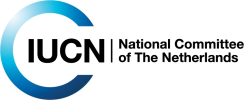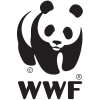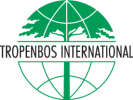In an effort to stimulate the development of climate-friendly community businesses in Ketapang District, West Kalimantan Province, Tropenbos Indonesia has organized a series of climate friendly and community-based business competition activities. Starting from the pre-selection and training stage of making a business plan, the competition resulted in 5 business cases. The finalists received technical assistance to implement their business plans.
The Ketapang-Kayong Utara landscape in the West Kalimantan province is dominated by economic activities in production areas. It is a heavily deforested area with important remaining primary forests and a large area of peatlands that are particularly important for climate.
The expansion of concessions for commodities such as rubber and palm oil contribute to one of the highest rates of deforestation in any province in Indonesia, while the area is home to the last intact low-land forest of Borneo and harbours one of the largest wild populations of orang-utan.
Both village resource management and the protection of remaining natural forests are challenged within the landscape.
Peatland Fires
The area is hit hard by peat land fires due to extreme weather as the impact of climate change. Drained and degraded peatlands in combination with the current land use practices have triggered recurrent fires.
At the same time, the traditional agroforestry system is under threat for conversion to palm oil monoculture, with estimated 20-34% palm oil plantation were independent smallholders. Currently, incentive mechanisms to protect forest areas are not in place and local communities have limited options for sustainable alternative livelihood due the lack of skills, knowledge, and capacity. In addition, local smallholders and entrepreneurs experience insufficient linkages to market and financial support to develop community-based climate resilient businesses.
Important Peat Domes
The Ketapang-Kayong Utara landscape includes important Peat Domes that have to be protected to prevent massive emissions of CO2 and other, more potent greenhouse gasses. Yet the landscape itself is hit hard by the impacts of climate change.
Adaptation And Mitigation Should Go Hand In Hand
The occurrence and intensity of droughts are on the rise, leading to reduced agricultural productivity and increasing forest and peat land fires. The latter are notorious in the region, contributing to massive additional CO2 emissions. This negative feedback loop shows how urgent both climate adaptation and mitigation are in this landscape, and how they should go hand in hand. Biodiversity is under pressure from these various issues although parts of the landscape are still intact and require robust, inclusive protection and sustainable management.
Momo4c Action In The Ketapang-Kayong Utara Landscape
Tropenbos Indonesia works in the Ketapang-Kayong Utara landscape to increase economic diversity and improve resilience of smallholder farmers to climate change impacts. It will involve various stakeholders such as local government, companies, smallholders, financial institutions, and NGOs to address landscape challenges to attract innovative financing mechanisms to develop climate resilient businesses. The focus is on community-based entrepreneurs with projects for climate resilient solutions that will attract more investment towards the landscape.
Tropenbos Indonesia will improve the capacity of smallholders to connect to agro-forestry value chains and to connect to responsible buyers and sustainable investors. The entrepreneurs and local farmers will achieve business cases for diverse income streams that positively contribute to climate change mitigation and adaptation.
MoMo4C will provide technical assistance and business case development support to allow these community-based businesses to scale up in order to access adequate sources of capital.
Villages in Indonesia that have obtained a social forestry permit are allowed to develop enterprises, called social forestry business unit (KUPS), so they can benefit from the forest while also protecting it. For further development after being established, with the village government’s decision letter the KUPS can access Bangpesona grants from the Directorate General of Social Forestry and Environmental Partnership, the Ministry of Environment and Forestry.
Credit Unions can make a significant change for farmer groups. Watch the video about a farmer group in West Kalimantan.


